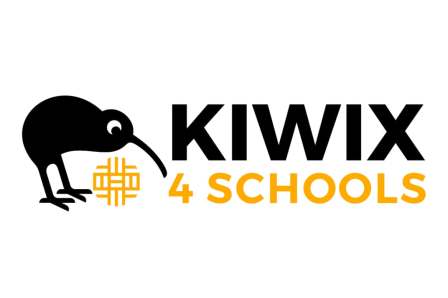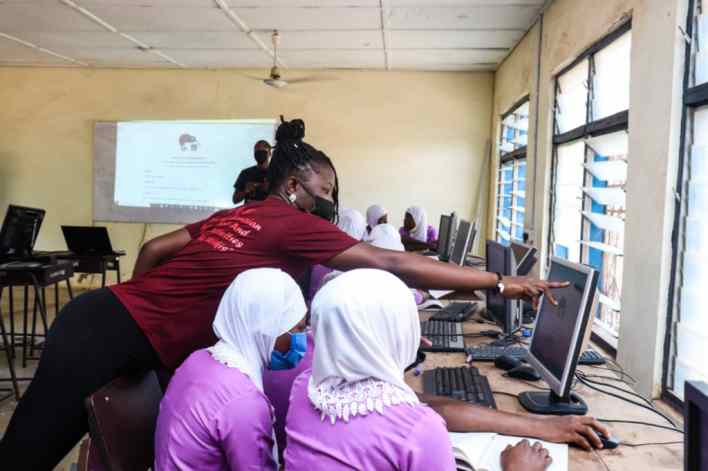
Background
The United Nations declared internet access to be a fundamental human right in 2016. In 2019, the 28th of September was designated as International Day for Universal Access to Information. We are all aware of how crucial the internet is for information access.
Nonetheless, despite all of the declarations, the story in our part of the world, Africa, is rather different. There is still a significant gap in connectivity.
For the majority of the world, getting access to online educational resources continues to be difficult. Data by datareportal.com estimates that more than 58.8% of the globe is now online, the majority is still based in the West. This disadvantages many nations in the Global South and restricts their access to online knowledge, information, and supplementary educational resources.
This is more obvious now that the pandemic has spread over the world and forced teachers and students to rely on the internet for instruction and learning. The high cost of maintaining internet infrastructure and the poor internet access in the Global South also contribute to this barriers.
Although Africa has an internet penetration of approximately 43% (as of 2021), our internet usage is still very low, as evidenced by the fact that we do not have a large number of connected users.
There are numerous factors contributing to the problem, one of which is the high cost of the internet, as it has been revealed that the most expensive mobile data plans are in Africa. The Alliance for Affordable Internet (A4AI) published research in 2021 that showed how expensive the internet is in Africa in comparison to average country incomes. According to the findings of that study, the Central African Republic was the most expensive, with 1 GB of data costing the equivalent of 24.44% of the average income. The other five worst countries were the Democratic Republic of the Congo (20.67%), Togo (15.10%), Chad (14.66%), and Malawi at 14.01%.
“Have you wondered how many people will spend 24.44% of their income on 1G of data? Your guess is as good as mine.”
As we have seen from the schools we have so far visited, non of them have access to the internet for online learning. Exorbitant data bundles amongst others continue to deprive many children of access to online learning from the region.
Other challenges include a need for more affordable devices and infrastructure. Devices and infrastructures are the tools used to access the internet without which one is unable to do so. By matching students to computer ratios in each school visited, we were alarmed at the gap. The average student-to-computer ratio for a total of 22 schools was calculated at 145,105 students to 395 devices. As much as we are excited about this project, this is one of the barriers that, if overcome, will allow more students to access the resource provided.
Furthermore, evidence suggests that men are 21% more likely than women to be online, rising to 52% in the least developed countries. On the other hand, people with higher levels of education appear to be more connected than those with lower levels of education.
Although Covid-19 had its own crises and economic difficulties, it positively impacted data and the digital world. One of the most significant ways we have adapted globally is through the use of digital technologies.
The fact that we can do online learning, access e-health in cases where people are unable to physically go to the hospital, or fact that some companies, businesses, and offices can pivot online using to do their work or host webinars, I believe, are all coping mechanisms.
A look at the global trend shows that one of the ways individuals, organizations, and institutions have coped in these times is through the use of digital technologies and the internet. It is unfortunate that one of the sectors severely impacted by the pandemic in Africa was education.
The internet is a source of empowerment as well as a means for acquiring knowledge. Unfortunately, a substantial percentage of African schools especially outside of cities, which constitute the majority, are not connected to the internet and are falling behind.
To help them along, we have found Kiwix as a useful tool in helping address the issue regarding connectivity in schools. For the past two years, we have been implementing the Kiwix4Schools initiative as an effort to improve teaching and learning outcomes for both educators and learners.
What is Kiwix?
Kiwix is an app or software that makes online educational content offline. In the past, we have installed the software in various senior secondary schools across the country.
Impacts were made in the schools that were visited. Today, students and teachers can make use of educational content categorized into subjects like Science, English, Mathematics, etc, and other websites like the world’s biggest encyclopedia, Wikipedia, TED videos, and others for free without the use of the internet.
What is Kiwix4Schools Program?
It is a program being organized by Open Foundation West Africa. The initiative was born out of a Pilot project which was first initiated by Felix Nartey in 2015 at the Wa Senior high school. Over the years, Maxwell Beganim the Kumasi Wiki Hub Lead at the time also carried out a series of pilot projects in Kumasi, the Ashanti Region in 2019. During those pilot projects, the needs assessment conducted indicated that there was a need for such resources and so this informed our decision to formalize and properly develop and implement this program in 2020. It was however postponed to 2021 due to the Covid-19 pandemic.For the past two years, this program has been running in Ghana.
How did we do it?
The OFWA Kiwx4Schools Program uses a community-centered approach in its implementation by issuing community mini-fund opportunities at the beginning of every year. This method has provided a more sustainable approach to running the program. Through this approach, we have effortlessly reached schools in diverse regions and also brought meaningful engagement and skill-building opportunities to community volunteers located across Ghana as a way of ensuring inclusion in volunteering as not all community members love to edit the wikis or contribute to photography. Volunteers who apply submit their proposed schools, budget, and a brief motivation through our Kiwix mini-fund program. Shortlisted applicants are taken through a 2-day training and have access to one-on-one mentorship. As part of the implementation process, volunteers conduct surveys for evaluation purposes.
When volunteers get to the school, they are first to install Kiwix on the computers in the ICT Lab, then conduct a brief survey, after which they conduct training on how to navigate the Kiwix software to browse through the resources on it. They also teach students about digital citizenship and introduce them to Wikipedia as a great learning resource. In conducting this training for students, one strategy we adopted was to train selected students from each of the class levels to act as ambassadors. In that way, they are also able to share the skills and knowledge they have acquired with their peers.
Through this program, we have been able to train about 30 community volunteers. Building skills is essential and also in alignment with the Movement Strategy recommendations, thus invest in skills and leadership development. In implementing this project, our target class level has been Senior High Schools (SHS). This is a result of the fact that they are more likely to have computer laboratories compared to the primary or Junior High School level. Some of the content we make available to the schools includes Ted Ed, PHET, Chemistry, Physics, Earth Science, English, Wiktionary, etc.
2021 & 2022 Outcomes?
Since the inception of this program in 2021, we have implemented the project in 7 regions in Ghana, and that includes the Volta, Eastern, Ashanti, Northern, Savannah, North East, and Upper West regions. We have trained a total of 777 students across 22 schools, of whom 49.8% were female. Volunteers were able to install Kiwix on 395 devices at the schools they visited. When volunteers asked students about their access to the internet, 75.5 percent of the students reported having ever used the internet before, and 52% also reported having heard of Wikipedia before; however, for Kiwix, barely 2% had ever heard about it. Another interesting finding that emerged from the project was the unmatched student-to-computer ratio. For all the schools visited, the combined student-to-computer ratio stood at 145105:395 respectively, which was alarming.
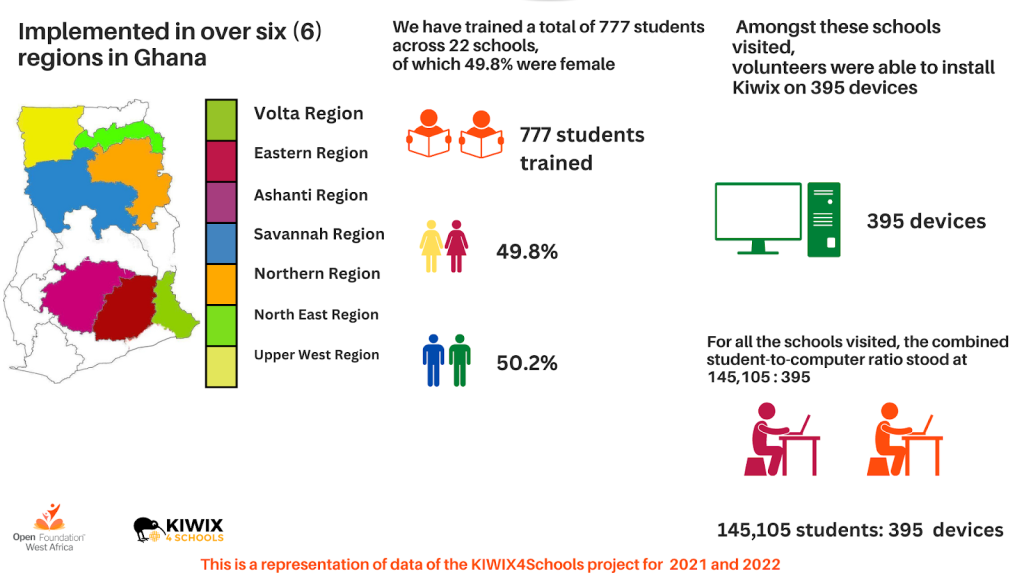
Challenges
Through this program, we encountered diverse kinds of challenges which were great learning for improvements and also for anyone looking to implement a similar program. Amongst these challenges included;
- Lack of infrastructure. The student-to-computer ratios were unrivalled across all schools visited. indicating that only a few students have access to the computers at any given time.
- Also, there is a limitation to the use. Once installed on the computer, it’s not shareable on other devices. You are only limited by the computer with the installation. However, we are aware that having a raspberry pie could be a solution to this limitation. This will allow any device to connect just like WiFi, allowing many more people to access the knowledge on the server. However, this comes as an additional course. Lack of local content
- Not all open resources are compatible with the Kiwix software. Before any resource is put on Kiwix, we first need to turn it into a ZIM file. The good thing is that most websites can be turned into ZIM files. However, not all website files converted to ZIM files are compatible with the Kiwix software.
- Copyright issues prevented us from getting some localized content on Kiwix. You must ensure that any resource or website you want to add to Kiwix is under an open license.
- We are not able to track usage, as we do not have the tool to do so. It would have been helpful to know which resources are most beneficial to teachers and students by tracking usage. This will help us best appreciate the impact of the project.
- Also, we learned that volunteers needed to confirm the programs the schools run and align them with contents that are most useful to them.
- We also learned that installing the software on the devices could take a long time, depending on the number of devices at the school. It is always best to do the installation by arriving very early at the school, or better still, a day before the event, so you have enough time to train the students too.
- Gathering all students in one room leads to overcrowding and can be disruptive. To ensure equity in skill building, we sample students from each class level for the training. As a result, they act as ambassadors, teaching their peers in their respective classes.
- We also realized that the project will have a great impact on Senior High Schools (SHS) which at least have a computer lab compared with primary and junior high schools.
- The volunteers had a challenge getting acceptance at some of the schools. This was the challenge with a few schools in the Volta region.
- There is a high demand from many schools for us to implement the program; however, due to limited resources, we are more strategic about this. Some communities also are in dire need of computers in their computer labs which impedes our ability to implement the program.
Appreciation
Much appreciation, first of all, goes to the Wikimedia Foundation for being the main partner and sponsor of this initiative since its inception. Secondly, we are very grateful to community volunteers, hub leaders, and trainers who invested their time to travel, train, and worked tirelessly to ensure that these schools have access to these resources, we say “AYEEKOO” (meaning well done)
Here is what some of the volunteer implementors of the program have to say about their experience and thoughts;
“Kiwix educational app has been by far the first and the best app to be introduced to some schools in the northeast region of Ghana, Introducing it to the students and how easy it is to work with amazed the students on the use of the application, as a community volunteer, I wish more could be done to help the students in our senior high schools”- Daboo Gideon Babosima Walewale Wiki Hub
My experience with Kiwix is great, I volunteered for Kiwix4schools where I implemented the program in schools within my community. I must say that Kiwix is Power, with it, schools in communities are also able to access information to enhance teaching and learning outcomes.- Mohammed Alhassan
“Implementing Kiwix gave me the opportunity to interact with students and gained experience on Information and knowledge access which is primarily very key in their educational progress. Digital Citizenship is key to realizing this progress as it leapfrogs students to be globally competitive and prepared for the Education for the future by bringing education poverty and digital divide”. – Maxwell Beganim Kiwix Trainer
“Increasing access to digitization and decolonizing the internet especially in Global South Countries require innovative approaches that do not just concentrate on access but also training and mentorship. This is what the Kiwix project has been doing and I am proud to be an integral part of this movement, sweeping through the African continent the change we need.”- Otuo Acheampong Boakye
First of all, both teachers and student have displayed their thirst for more knowledge and resources which is lacking in the current system. And they are so excited to have access to this free tool and resources which they use to enhance their scope of learning. Another thing that stood out was, is the way heads of schools and teachers supported us to running the project.
I have also learnt a lot in the preparation stage and delivery stage of the project. – Christopher Azorbli
What’s Next? About the offline Kwix4Schools Regional Mentorship Program.
While we were excited about the impact and learning from our project, we also saw opportunities to expand our reach and impact in new communities across Africa and beyond. At the recent Wiki Indaba 2022 conference in Rwanda, we were approached by many community members from other African regions who expressed interest in learning about the project because they saw the need for it, confirming our previous assertion about taking a regional approach in 2023 to mentor and groom volunteers from the region. We are excited to announce today that this vision has become a reality. In the coming days, we will launch our Offline Kiwix4Schools Regional Mentorship program. We want to use this opportunity to call on partners and stakeholders who are passionate about making an impact in education in Africa to come on board and support the initiative in any way possible. Interested to be a supporting partner for this project submit your application here.
Feel free to also send an email to info@ofwafrica.org or rbrown@ofwafrica.org.
Gallery
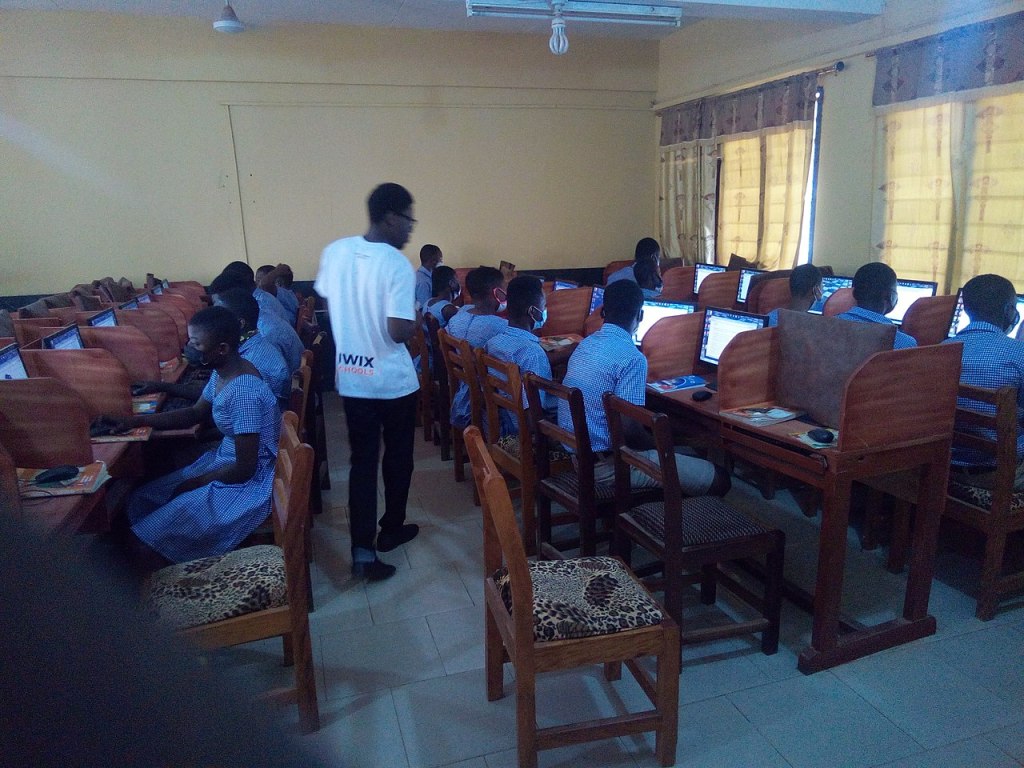
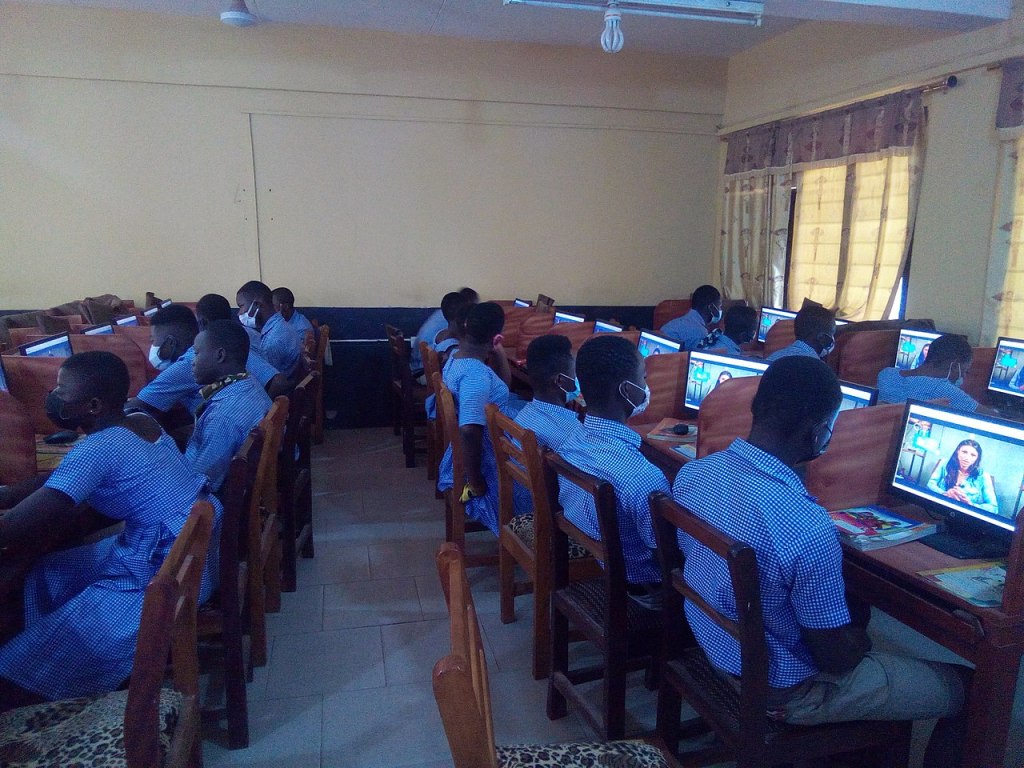
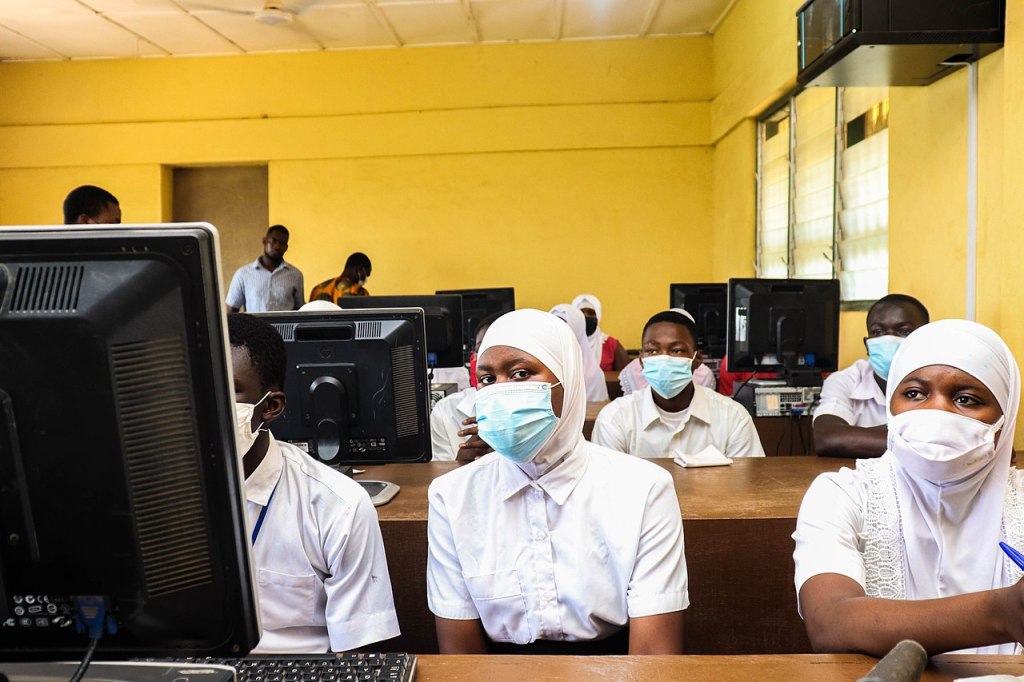
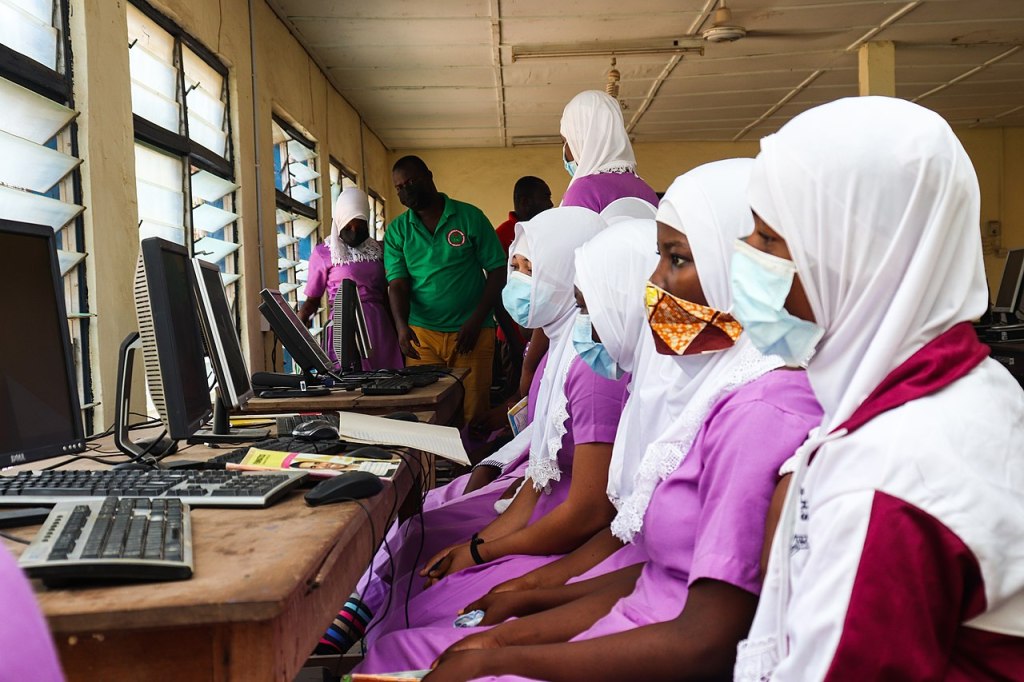
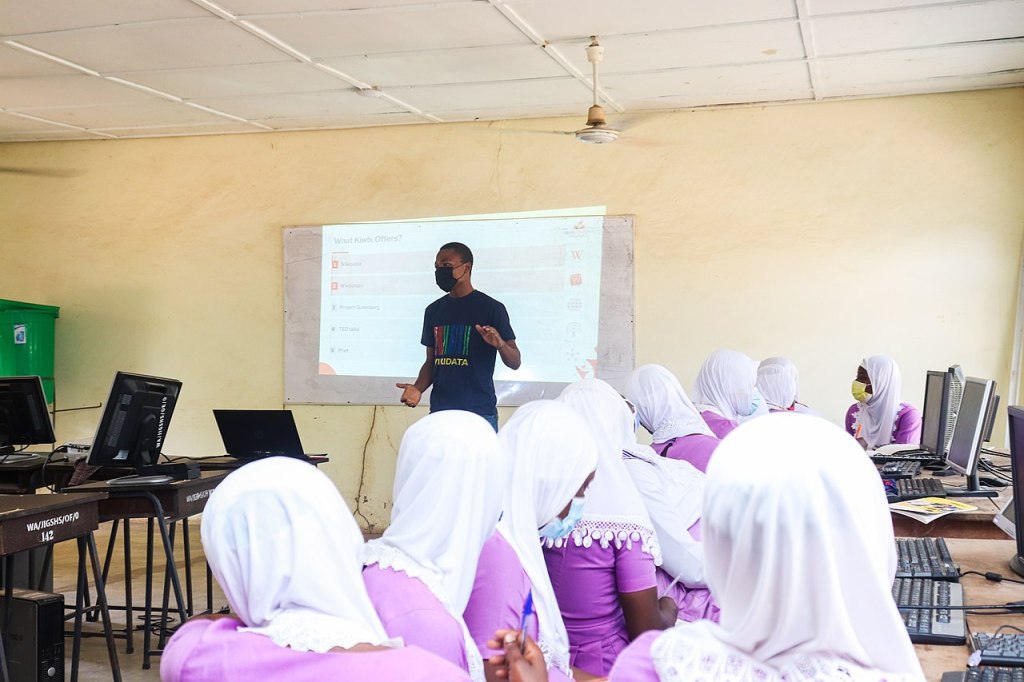
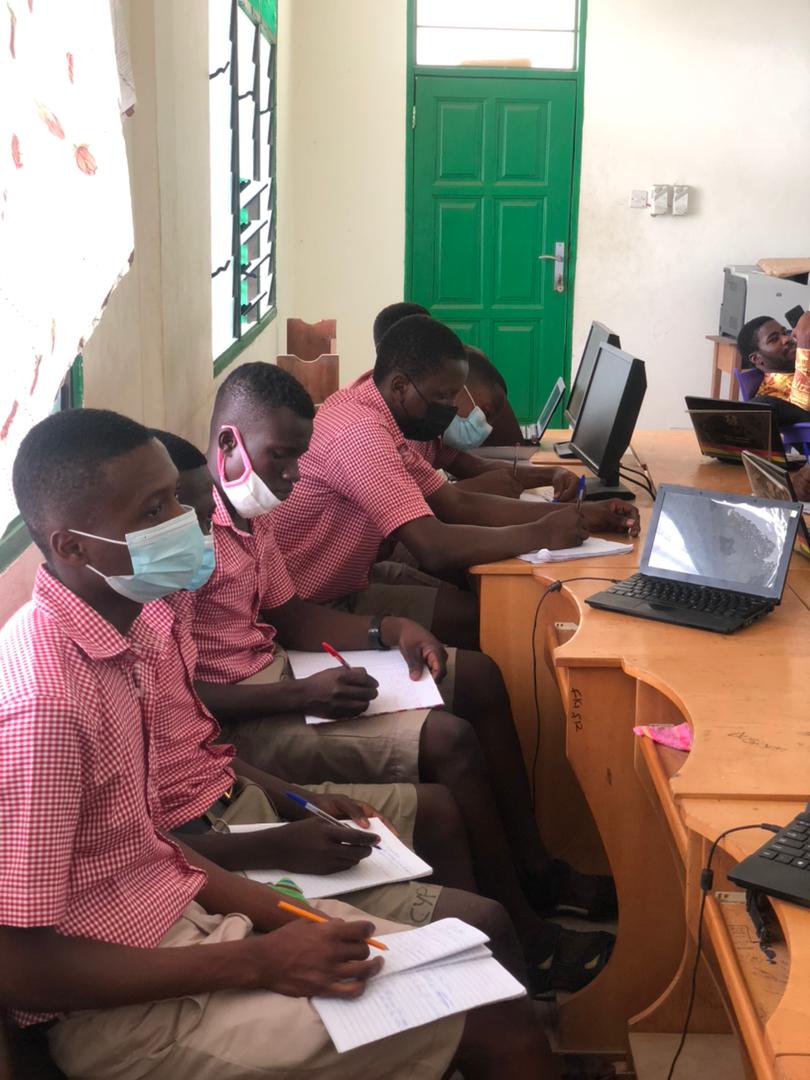
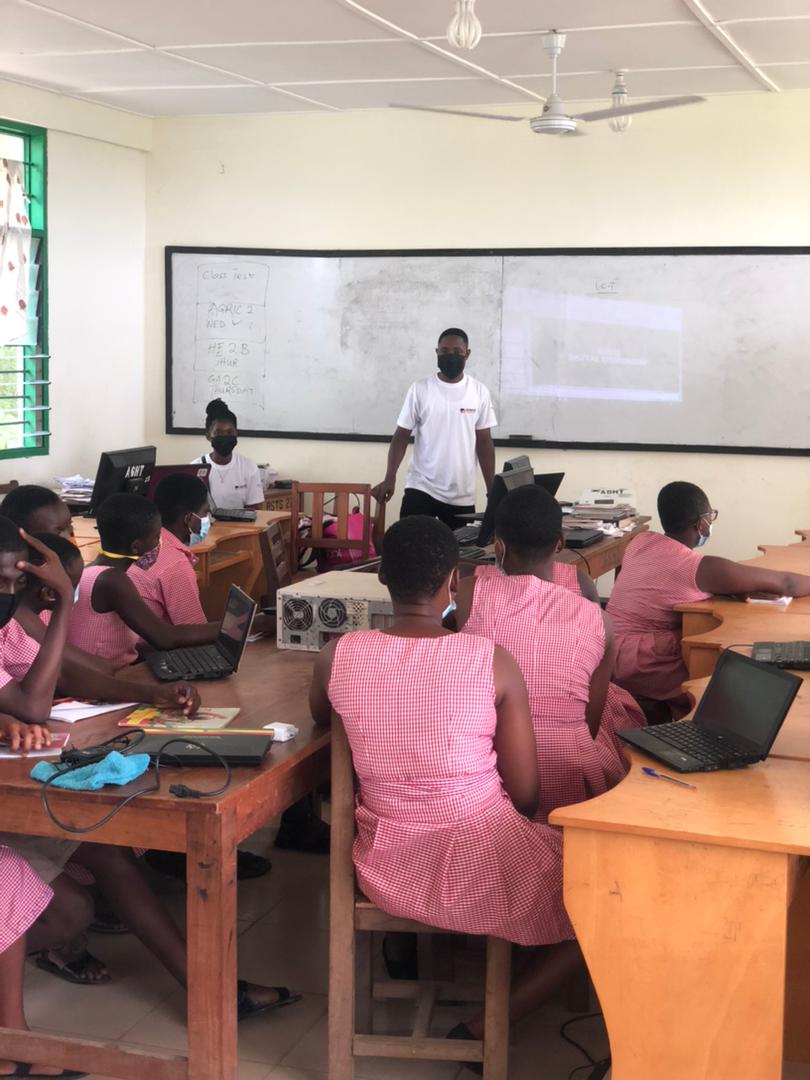

Can you help us translate this article?
In order for this article to reach as many people as possible we would like your help. Can you translate this article to get the message out?
Start translation
